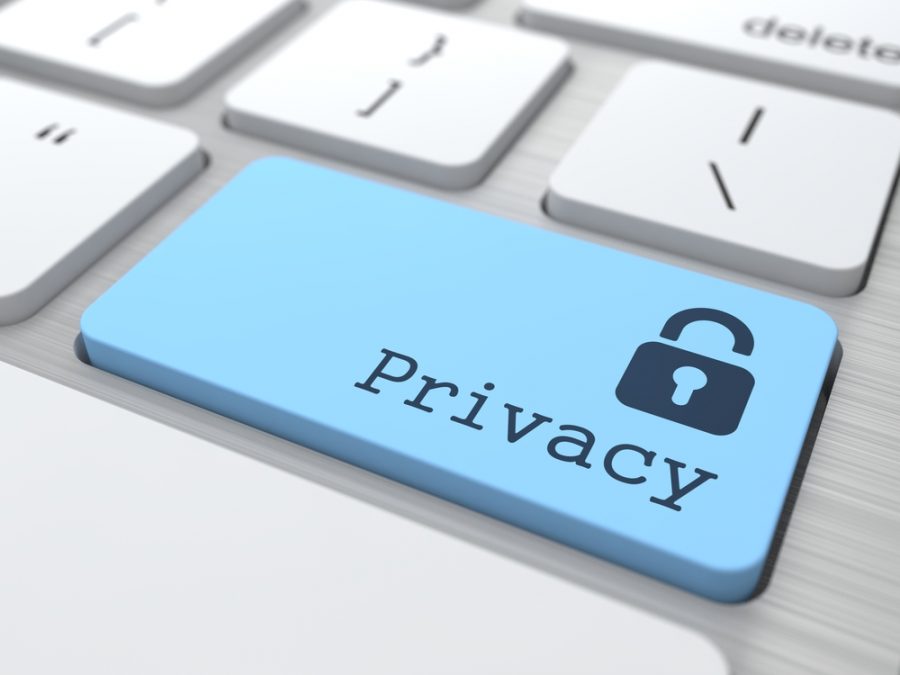The perky cashier stopped my transaction midway to ask for my email and phone number.
Not now. Not ever. No more. I’ve had enough. I thought to myself.
“I’d rather not, thank you,” I replied.
The cashier finished my transaction and moved on to the next customer without a second thought.
And, my email and phone number lived in one less place that day.
This seemingly insignificant exchange happened over a year ago, but it represents the day I decided to get serious and champion my (and my family’s) privacy.
I just said no. And I’ve been doing it a lot more ever since.
A few changes I’ve made:
- Pay attention to privacy policies (especially of banks and health care providers).
- Read the terms and conditions of apps before downloading.
- Block cookies from websites.
- Refuse to purchase from companies that (appear to) take privacy lightly.
- Max my privacy settings on social networks.
- Change my passwords regularly and keep them strong!
- Delete apps I no longer use.
- Stay on top of software updates on all devices and add extra protection.
- Have become hyper-aware before giving out my email, address, phone number, or birth date.
- Limit the number of photos and details shared on social media.
~~~
The amount of personal information we share every day online — and off — is staggering. There’s information we post directly online such as our birth date, our location, our likes, and dislikes. Then there’s the data that’s given off unknowingly via web cookies, Metadata, downloads, and apps.
While some data breaches are out of our control, at the end of the day, we — along with our family members — are one giant data leak.
Studies show that on average by the age of 13, parents have posted 1,300 photos and videos of their child to social media. By the time kids get devices of their own, they are posting to social media 26 times per day on average — a total of nearly 70,000 posts by age 18.
The Risks
When we overshare personal data a few things can happen. Digital fallout includes data misuse by companies, identity theft, credit card fraud, medical fraud, home break-ins, reputation damage, location and purchasing tracking, ransomware, and other risks.
The Mind Shift
The first step toward boosting your family’s privacy is to start thinking differently about privacy. Treat your data like gold (after all, that’s the way hackers see it). Guiding your family in this mind-shift will require genuine, consistent effort.
Talk to your family about privacy. Elevate its worth and the consequences when it’s undervalued or shared carelessly.
Teach your kids to treat their personal information — their browsing habits, clicks, address, personal routine, school name, passwords, and connected devices — with great care. Consider implementing this 11 Step Privacy Take Back Plan.
This mind and attitude shift will take time but, hopefully, your kids will learn to pause and think before handing over personal information to an app, a social network, a retail store, or even to friends.
Data Protection Tips*
- Share with care. Think before posting about yourself and others online. Consider what it reveals, who might see it and how it could be perceived now and in the future.
- Own your online presence. Set the privacy and security settings on websites and apps to your comfort level for information sharing. Each device, application or browser you use will have different features to limit how and with whom you share information.
- Think before you act. Information about you, such as the games you like to play, your contacts list, where you shop and your geographic location, has tremendous value. Be thoughtful about who gets that information and understand how it’s collected through websites and apps.
- Lock down your login. Your usernames and passwords are not enough to protect critical accounts like email, banking, and social media. Strengthen online accounts and use strong authentication tools like a unique, one-time code through an app on your mobile device.
* Provided by the National Cyber Security Alliance (NCSA).
January 28 National Data Privacy Day. The day highlights one of the most critical issues facing families today — protecting personal information in a hyper-connected world. It’s a great opportunity to commit to taking real steps to protect your online privacy. For more information on National Data Privacy Day or to get involved, go to Stay Safe Online.













